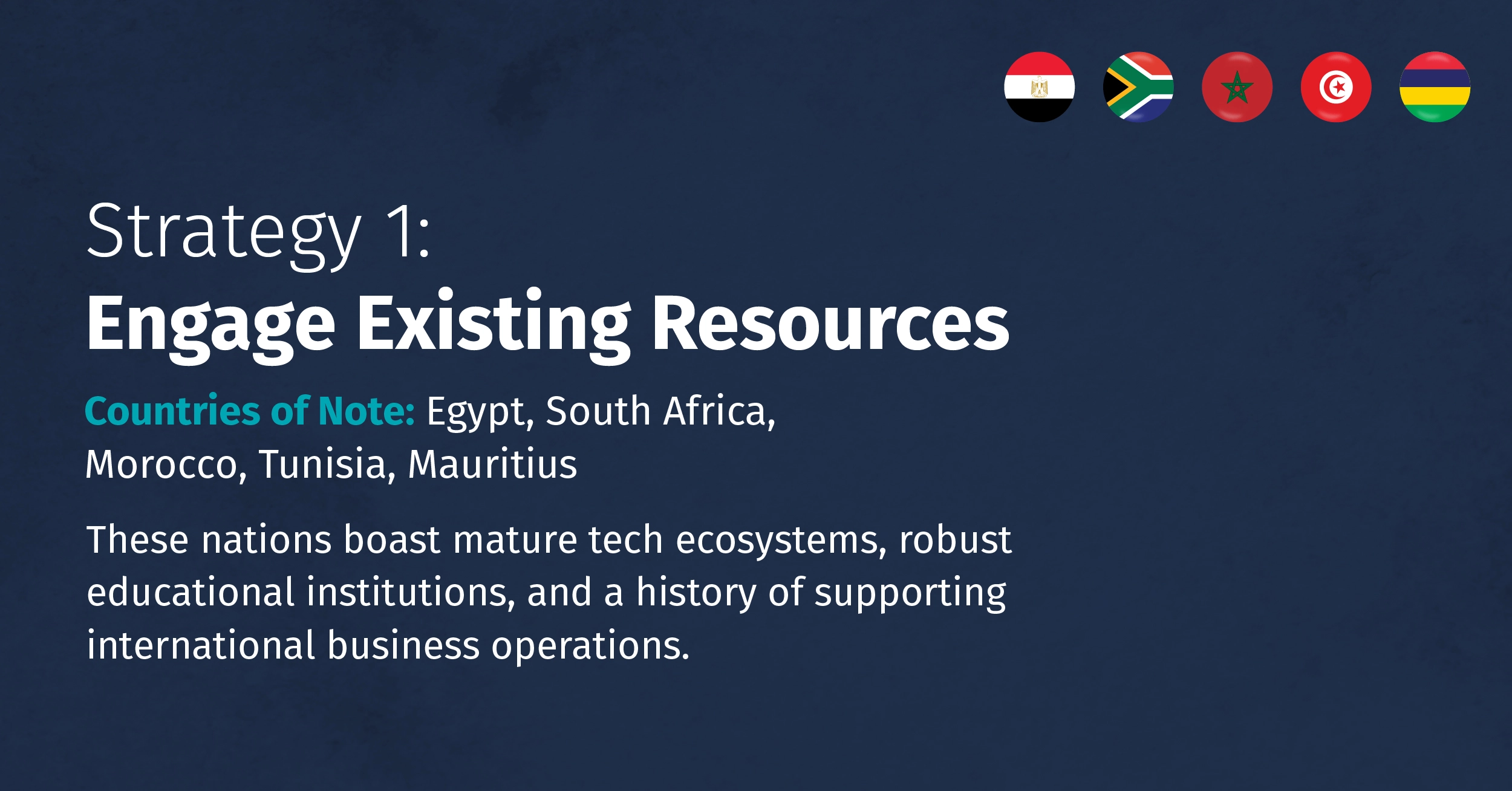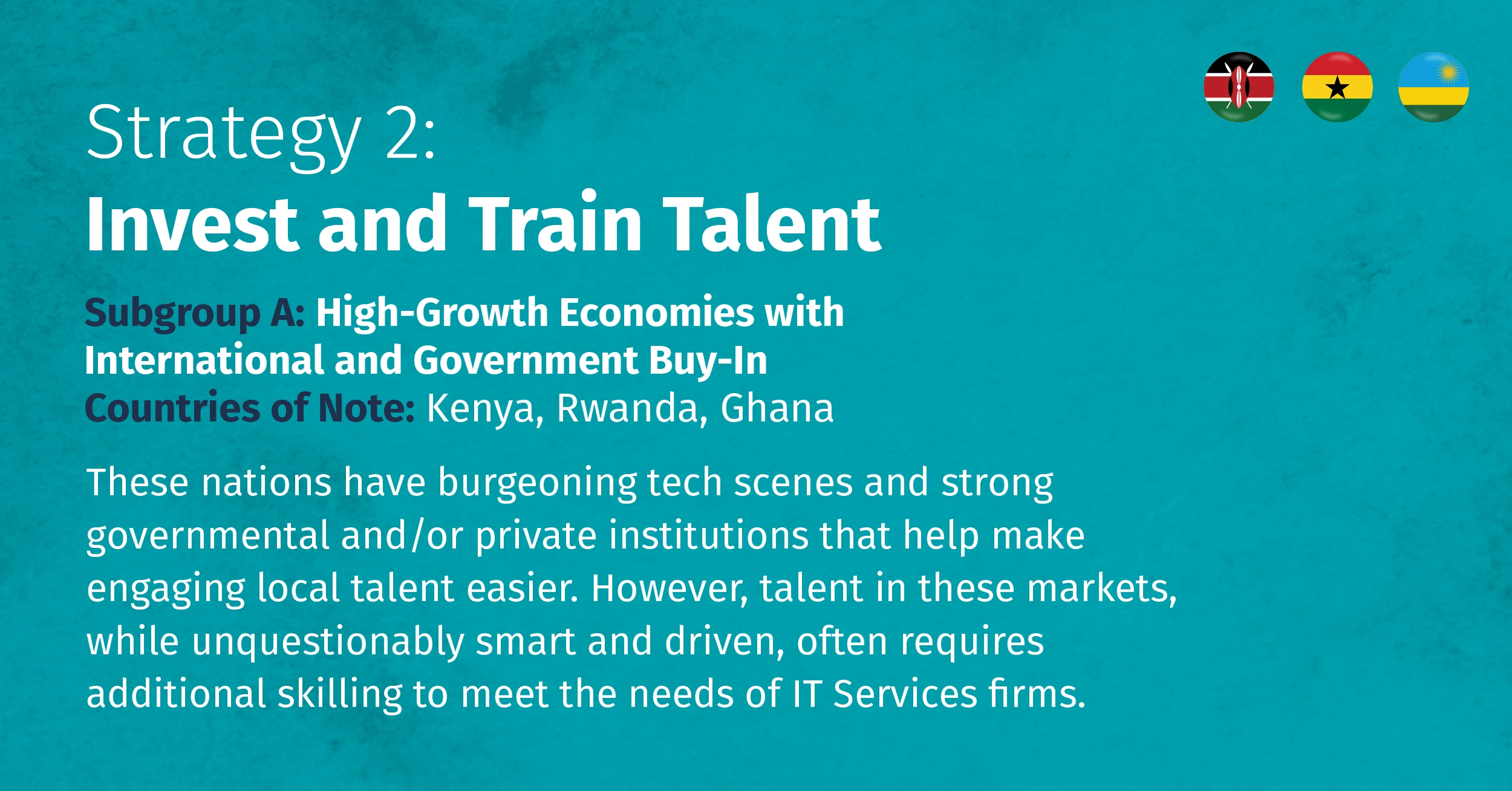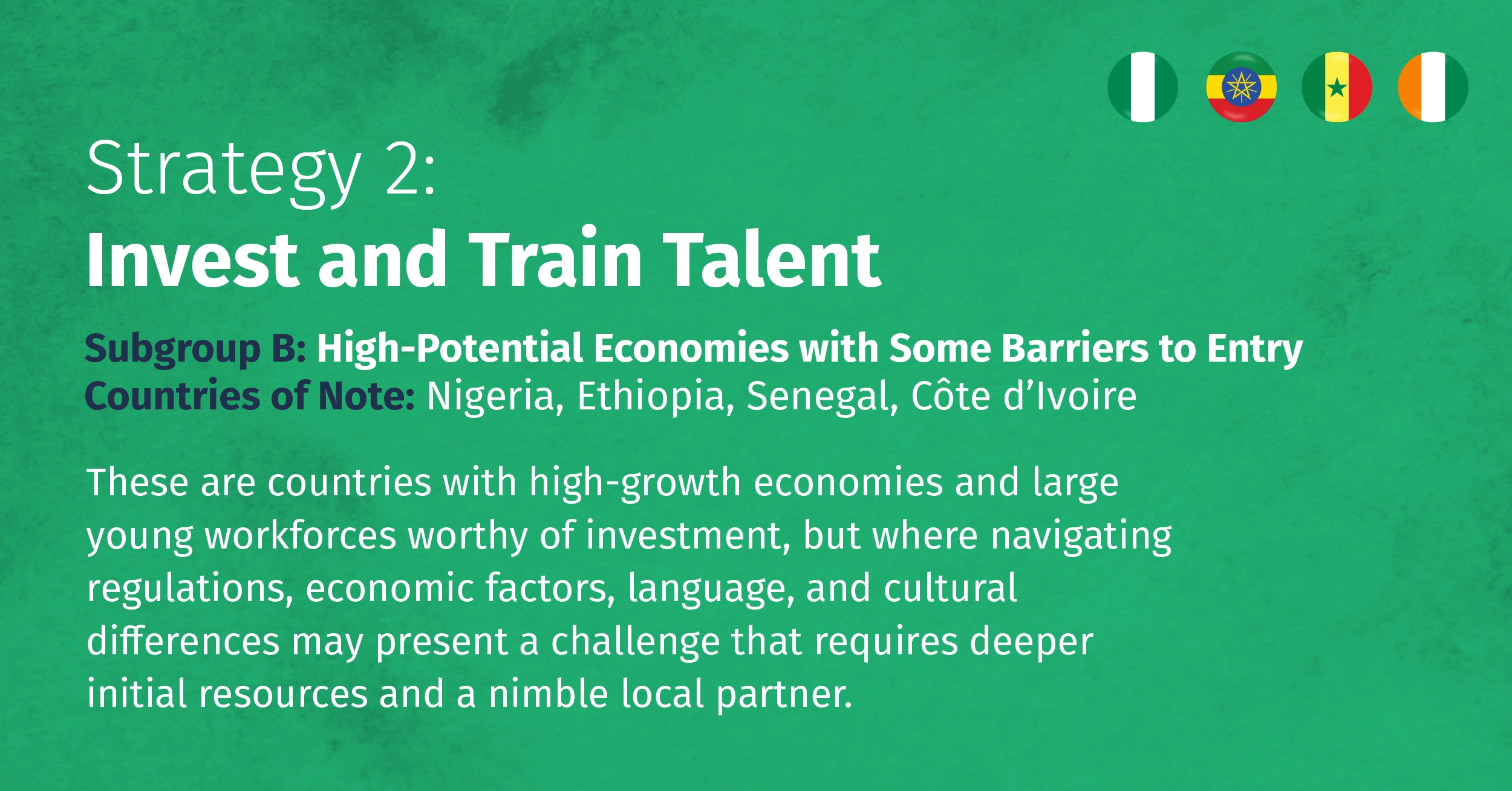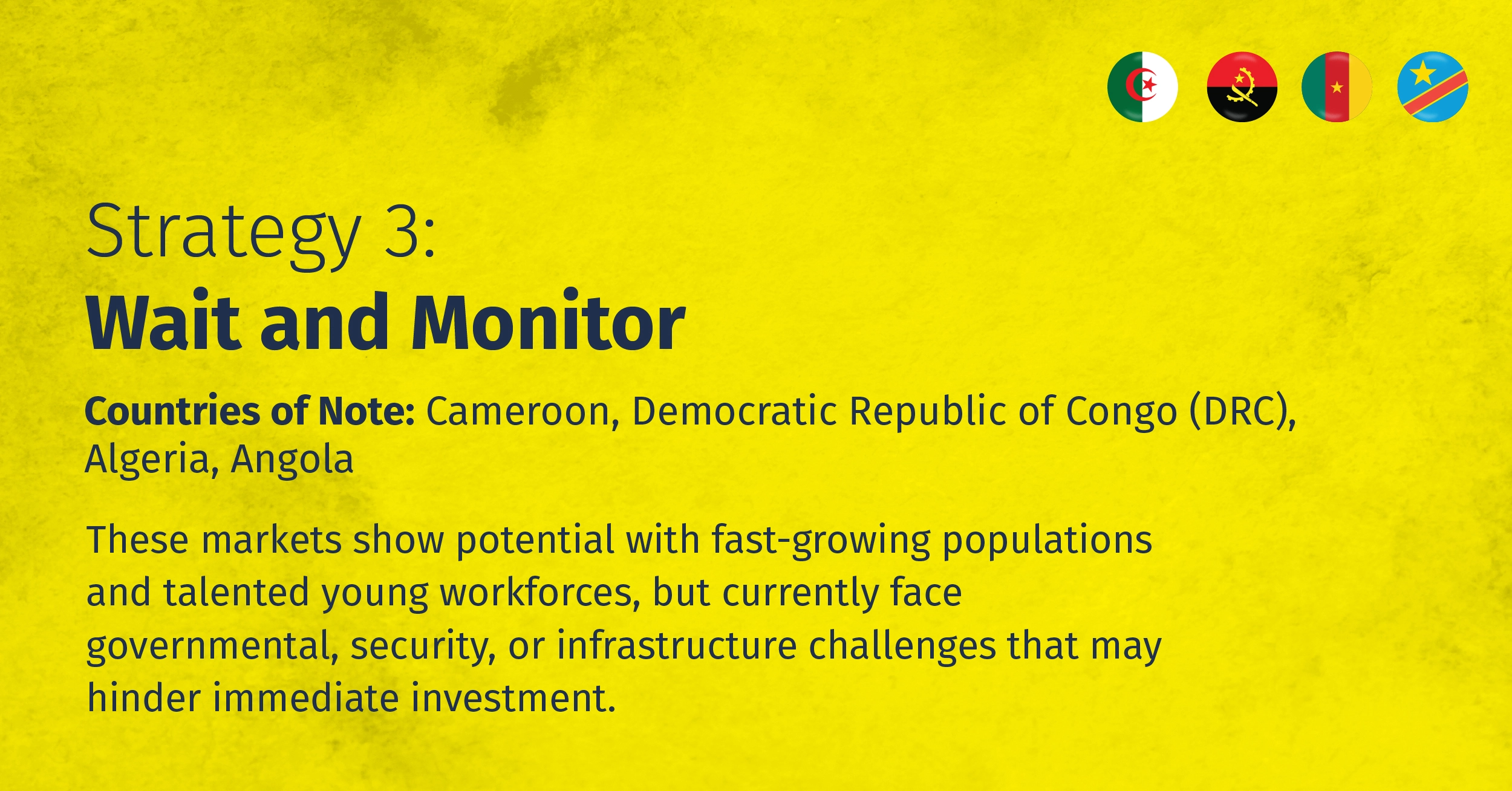IT services has always been an industry that succeeds due to people. While AI is rewriting parts of the playbook, global talent remains a critical chapter. What’s changing is the way companies think about where and how they invest in that talent. Today, it’s about more than cost—it’s about capability, culture, and continuity.
One region expanding the global talent landscape is Africa. Given that the continent harbors the world’s fastest-growing workforce, paired with rising costs and employer saturation in other international talent markets, we called out Africa’s rise as one of our 2025 services trends.
With its youthful population, expanding tech ecosystems, and increasing government support, the continent offers a range of opportunities for building and scaling delivery capabilities. However, the continent is not a monolith; its markets vary widely in maturity, infrastructure, and talent readiness. Understanding these nuances is crucial for aligning your global delivery strategy with the right African markets.
In 2024, the Tercera team visited 7 countries on the continent in an effort to understand more about the different markets and how talent and business dynamics are evolving here. Having met with dozens of leaders who are building and investing in the region, we walked away extremely excited about the potential for Africa, and more educated on which regions might be ready for certain firms.
We’ve organized some of the most notable markets in Africa on the spectrum of those that have the most mature tech talent ecosystems to those that are just beginning to build this capacity in order to meet global demand. It should also be noted that while I’ll make this breakdown on the country level, it’s often the existence of specific international-level metropolitan areas (think Cairo, Cape Town, Johannesburg, and Nairobi) that drive the viability of these markets.

A Closer Look:
Two clear standouts in this category — South Africa and Egypt, boast the majority of the top-ranked universities in Africa. This concentration of quality academic opportunities and the presence of large international players such as AWS have made South Africa, in particular, a very attractive market for tech talent in Africa. Our portfolio company, Black Diamond, has had great success engaging experienced contractors in the country over the past few years. In Egypt, the tech ecosystem is equally vibrant, with a well-established talent base that can navigate (linguistically, skill-wise and culturally), work across both European and US markets as well as the Saudi and Gulf markets.
Mauritius is also notable as an attractive gateway into Africa, offering strong infrastructure, a reliable legal system, political stability, and generous incentives for foreign businesses. Despite its small size (population of only 1.3 million), Mauritius hosts significant offices of Accenture, Infosys, and the African Leadership University, reflecting a strong, though limited, talent pool.
Considerations:
While these countries offer immediate access to skilled talent, they also come with higher competition and potentially higher costs. It’s essential to weigh the benefits of quick scalability against the challenges of talent retention and wage inflation.

A Closer Look:
In Kenya, the tech ecosystem has grown rapidly over the past decade. But with that growth has come challenges: high attrition, uneven training standards and a wide variability in salary expectations. A good approach in a market like this is partnering with organizations that have deep knowledge of the talent pipeline. In Kenya, for example, Tana stands out as a tech and data staffing firm connecting the large pool of entry-level tech talent with international opportunities. Their model is training junior professionals in in-demand skills while fostering strong company culture, offering a sustainable way to scale.
In markets like Rwanda and Ghana, while the IT services ecosystems are smaller in size, governments and private institutions are eager to attract international companies and often provide infrastructure and incentive support to facilitate investment from abroad. In Rwanda for example, a number of governmental and non-governmental organizations, including the Rwanda Development Board and Rwanda GBS Growth Initiative, not only help international companies establish a presence in the country, but ensure that they are prepared to navigate the business environment and have the necessary connections and resources to succeed.

A Closer Look:
As Africa’s most populous country and a leading economy, Nigeria presents significant opportunities in IT services, driven by a robust startup ecosystem. Initiatives like Itana (formerly Talent City), illustrate strategic efforts to establish digital free zones and attract international tech companies. However, Nigeria’s market entry comes with considerable challenges, notably macroeconomic instability characterized by currency fluctuations and inflationary pressures, infrastructural challenges including unreliable power and internet connectivity, and ongoing security and political risks. Additionally, intense competition for skilled talent has driven significant wage increases, creating cost pressures and difficulties in talent retention. Navigating Nigeria’s complex environment effectively typically requires partnerships with agile local entities that are well-versed in managing these nuanced challenges.
Senegal and Côte D’Ivoire are also rising stars in West Africa. With currencies pegged to the Euro and relatively stable democratic institutions, these countries have seen significant economic growth in recent years. One of our portfolio companies, Valiantys, has invested in developing Atlassian talent in Senegal and is now seeing strong returns across its global delivery model with talent working across both French and English-speaking teams. However, companies that do business primarily in English may have more trouble finding bilingual talent in these markets, and will need to invest in training locally in the skills they need.
Considerations:
Investing in these markets requires a long-term commitment to talent development and a company culture that drives retention. Partnering with local educational institutions and training programs can help build a sustainable talent pipeline aligned with your company’s needs.

A Closer Look:
Take Cameroon, for instance. It benefits from both French and English-speaking populations, respected academic institutions, and a growing tech community—particularly around the Silicon Mountain startup scene in Buea. But at the same time, political instability looms, and companies without prior experience in the region may be best served to wait. The country’s October elections may bring clarity—or prolong the uncertainty.
The timeline on waiting isn’t precise, especially across varied markets. Consider the Democratic Republic of Congo (DRC). While home to Kinshasa, the world’s largest French-speaking city, the country faces corruption and conflict. Predicting when, or if, it will evolve into a business-friendly environment is difficult even for regional experts.
Considerations:
For companies with long-term strategies, keeping an eye on these markets is advisable. Engaging in exploratory partnerships or pilot programs can provide insights and position your firm advantageously as conditions improve.
Winning in Africa Starts with Understanding
At Tercera, we’ve made understanding Africa’s diverse talent ecosystems a priority over the past year. That’s not accidental.
The continent is home to the world’s youngest and fastest-growing population. In an era where many economies are facing shrinking labor and consumer markets, Africa stands out as a long-term growth opportunity.
Just as no two companies are alike, no two African markets are either. Whether you’re looking to build talent from the ground up, tap into an established workforce, or monitor for future opportunities, intentionality is key.
A plethora of opportunities exist for IT services firms in Africa. Those who take the time to understand the nuances of talent markets across the continent and act strategically will be ahead of the curve as the global services landscape evolves.

